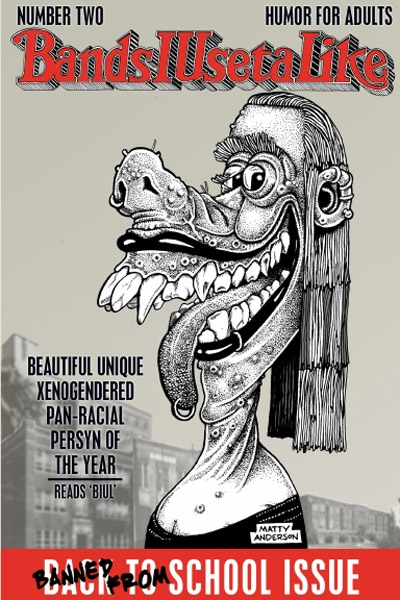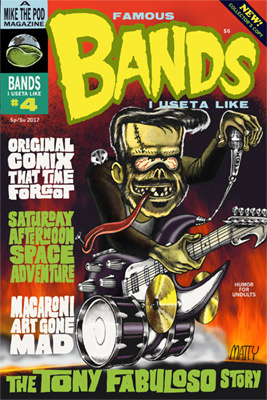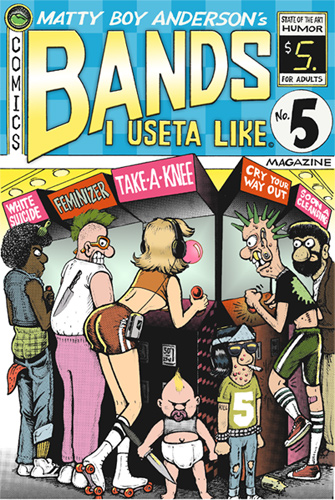Oh, you say there’s an ’80s revival on the way again? Are you ready for some chills of the douche variety?
Many things on television in the 1980s were, in hindsight, cringe-inducingly awful. Indefensible, from any logical standpoint. Cast into the dustbin of time by fading stars trying to build a better legacy.
Moonlighting was a seriocomic TV show that ran from 1985 to 1989, on ABC. It starred Bruce Willis, eventually with a hairpiece, and Cybill Shepherd, often through a lens smeared with Vaseline. In New Jersey, if you turned on a radio at any given moment, you would hear the vacant “Moonlighting theme”, by Al Jarreau. It sounded like the B-side of the Family Ties theme, or the waiting room of a dentist’s office. This was television music circa 1987; wood blocks and R&B with all the edge of a boiled shrimp.
I hated Moonlighting, yet I watched it religiously as a teenager. This kind of relationship doesn’t exist in modern times, because there’s too much freedom of choice. If a show annoys you, you can watch something else. Thirty years ago, you took what you could get as far as entertainment was concerned. Hence, a subconscious resentment formed.
Bruce Willis and Cybill Shepherd played private detectives, with their own L.A. agency. Allyce Beasley and Curtis “Booger” Armstrong rounded out the cast as a homelier counterpart. Like Taxi, Cheers and Frasier, this was a show that teased the possibility of a romantic pair-up, for its entire running time. It was a common trope of the era. Is this the Sunday they finally get together? Stay tuned!
I couldn’t have cared less. I couldn’t stand the Moonlighting commercials; they showed the same clip for years, where Bruce Willis bellows “Doo Wah Diddy” at Cybill Shepherd, and she does that stupid spin-around-to-face-him with hair flopping, like “oh you!”
UGGGHHH!!!
Why does this terrible shit still occupy my mind?! Why do I clearly remember Allyce Beasley as the receptionist, reciting tongue-twisters and rhymes on the phone to customers? Why do I remember that they did a Claymation episode?

For something so ballyhooed at the time, I could only find a couple screencaps. Erased… from existence.
Why do I remember, verbatim, an exchange where Willis’ David Addison asks about a person of interest with a mole on his nose:
B: A mole on his nose?
Addison: A mole on his nose.
B: What kind of clothes?
A: What kind of clothes do you suppose would be worn by a man with a mole on his nose?
Maybe I remembered it because it cracked me up, despite Willis explaining the joke to Shepherd and the viewers immediately afterward (“Gotta read a lot of Dr. Seuss”, nyuk nyuk).
See… Moonlighting would “break the fourth wall”. In case you don’t know, the “fourth wall” is the wall you don’t see on television, because it’s where the cameras are. Thus the “fourth wall” is your TV screen, and the means by which you observe the program.
When a character addresses the viewer directly, they are “breaking the fourth wall”. It’s typically meant as a wink, an indication not to take things too heavily. Willis’ legendary box office bomb, Hudson Hawk (from the makers of Heathers, inexplicably), is loaded with these asides. It became such a Bruce Willis trademark, he snuck it into Die Hard, during his successful transition to action-star.
However, many regard this as a cheat, a cheap way to grab the audience’s attention. Technically, it’s breaking character, much like “corpsing” (cracking up during a live performance). It should be done sparingly, if at all, and don’t fake it. Early on in the Dick Tracy strip, Chester Gould trapped the titular detective in a deep, vertical mud pit. A boulder was rolled over the opening, and due to the soft soil, it slowly descended towards poor Dick. Gould wrote himself into a corner, good and proper. He had no idea how to free him. (In a 1944 interview with Life, Gould boasted that this was deliberate; “If we worried about [how to get him out], we’d never get him in.”)
According to Jay Maeder’s exemplary Tracy biography, the story goes that Gould planned to draw his own hand into the strip, pulling a grateful Dick to safety as he exclaimed “OKAY GOULD, YOU’VE REALLY DONE IT THIS TIME!”
Gould’s editor, Captain Joseph Medill Patterson of the Chicago Tribune, put his foot down and rightly quashed this conceptual hambone. You might not recognize Patterson’s name, but you’ve heard of Little Orphan Otto, right? That’s because Patterson ordered it changed to “Annie”. This was a powerful figure with a contentious political agenda, who abode no bullshit. Picture the Nazi sympathizer from Indiana Jones and the Last Crusade, and… yer not too far off, frankly.
The Captain coerced Chester Gould into the resolution you see above, one of the strongest turns in the strip’s entire run. Following that, Gould continued to improve. (Until the ’60s, when he was allowed to follow his own hilarious space-muses.)
My point is: breaking the “fourth wall” is a cheat.
Back to Moonlighting.
Curtis Armstrong in a suit was the best part of the program. He looked no different from Revenge of the Nerds’ Booger, aside from the clothes. Part of me was convinced he would, one day, release a belch. He was the sole reason Nerds In Paradise was watchable, other than the “Hotel Coral Essex” gag.
Allyce Beasley made an cameo on one of those wonderful substance-abuse VHS tapes of yesteryear, and this is purely conjecture, but sometimes, they made you do that as part of your community service… for something drinky-swervy related. (Pardon the technical jargon.)
I’m not implying that’s what happened, but I am saying, if Allyce Beasley used to get blotto and party in the ’80s, she was probably a riot.
Unfortunately, you and I both know, there exists scum that will take advantage of fun drunk women. I’m not saying that happened, I’m saying that’s why we can’t have nice things.
Cybill Shepherd had a great agent; her face was on television for decades. She had a lukewarm sitcom called (duh) Cybill, notable for two unbelievable things; Christine Baranski’s funniness* and Alicia Witt’s red-hotness. This was around when Nikki Cox had her own show. I did a lot of painful, bittersweet masturbating around this period.
*If you doubt my praise of Christine Baranski, see Steve Martin’s Bowfinger, which you should have already. Case closed.
Moonlighting quietly expired at the end of the decade, after an episode where the two leads finally got on with it. Now that the mystery was gone from the mystery show, its expense could no longer be justified. (One episode using black and white sequences cost $2 million, ’80s dollars.) Like so many aspects of its era, it was fun while it lasted.
Looking back, it’s kind of a headache.




















You must be logged in to post a comment.